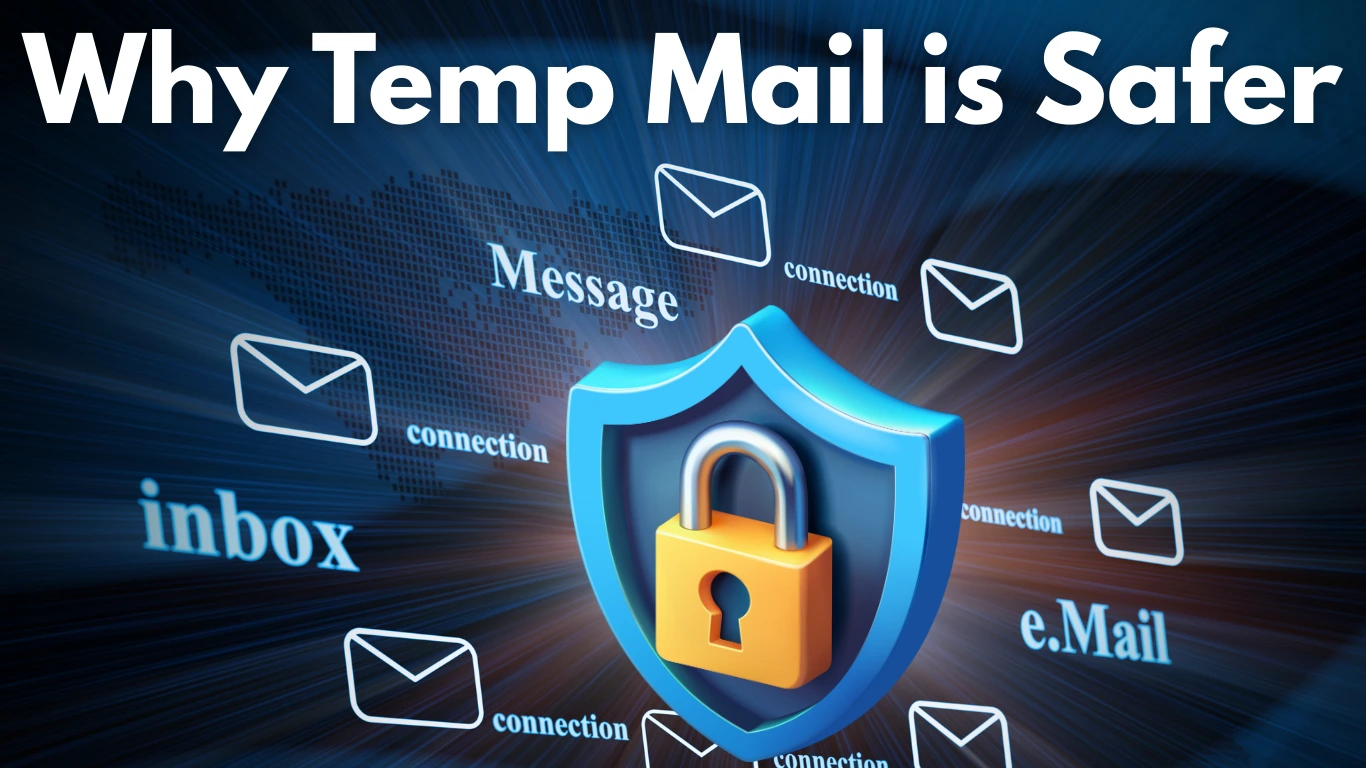

How Hackers Exploit Emails & Why Temp Mail is Safer
Every time you use your regular email online, you're handing hackers a master key to your digital life. From phishing scams to data breaches, traditional email is riddled with vulnerabilities. Understanding why temp mail is safer could be the difference between privacy and disaster.
How Hackers Weaponize Regular Emails
1. Permanent Identity Exposure
Your email address is tied to:
- Bank accounts, social media, and shopping profiles
- Password recovery systems
- Personal contacts and calendars
Result: Hackers exploit this "digital breadcrumb trail" for identity theft, credential stuffing, or targeted phishing.
2. Data Breach Time Bombs
In 2023 alone, over 6 billion email records were leaked in breaches (e.g., GoDaddy, Twitter). Once exposed:
- Your email gets sold on dark web marketplaces
- Scammers use it to craft "convincing" phishing emails
- Automated tools test leaked passwords across your accounts
3. Tracking & Profiling
Marketers and hackers embed trackers in emails to:
- Monitor your location, device, and browsing habits
- Build behavioral profiles for scams
- Link your activities across platforms (e.g., linking your YouTube to Amazon account)
4. Spam as a Gateway
"Free" newsletters or coupon signups often lead to:
- Malicious links in promotional emails
- Ransomware attachments
- "Account suspension" scams demanding personal data
Why Temp Mail is Safer: The Security Shield
Temporary email eliminates these risks by design:
| Risk | Regular Email | Temp Mail |
|----------------------|---------------|-----------|
| Identity Exposure | Permanent link to your life | Self-destructs after use |
| Data Breach Impact | Catastrophic (all accounts compromised) | Zero impact (address already expired) |
| Tracking | Trackable across platforms | Untraceable (no history) |
| Spam Vulnerability | Inbox flooded with threats | Auto-deletes spam |
Key Security Advantages:
- No Permanent Footprint: Temp mail vanishes after use, severing ties to your identity.
- Breaches Become Irrelevant: Even if a retailer leaks your temp email, it's useless to hackers.
- Zero Tracking: No history, no cookies, no cross-platform profiling.
- Instant Spam Blocking: Promotions and phishing attempts hit a dead end.
Real-World Scenarios Where Temp Mail Saves You
Scenario 1: Shopping on a New Site
- Regular Email Risk: Your email gets scraped, sold, and targeted with fake "order issues" scams.
- Temp Mail Solution: Use a disposable address → delete after purchase → no trace.
Scenario 2: Signing Up for Newsletters
- Regular Email Risk: "Free" recipes or fitness tips lead to malware-laden promo emails.
- Temp Mail Solution: Generate a temp address → access content → let it expire.
Scenario 3: Forum/Comment Sections
- Regular Email Risk: Trolls or hackers harvest your email for doxxing or phishing.
- Temp Mail Solution: Comment anonymously → address self-destructs → no retaliation.
Limitations & Smart Usage
Temp mail isn't a replacement for primary email. Use it for:
Low-risk signups (newsletters, forums, trials)
One-time purchases (avoiding retailer spam)
Testing services (apps, beta platforms)
Avoid for:
Banking, government IDs, or medical accounts
Long-term subscriptions (use email aliases instead)
Work-related communications
Pro Tips for Maximum Security
1. Pair with a VPN: Mask your IP address while using temp mail.
2. Use Reputable Providers: Choose services like Temp-Mail.io or ProtonMail with HTTPS encryption.
3. Generate New Addresses: Never reuse temp mail across sites.
4. Forward Critical Info: For receipts or confirmations, screenshot them before the temp mail expires.
Conclusion
Why temp mail is safer boils down to one truth: hackers can't steal what doesn't exist. By eliminating permanent email exposure, you close the door to phishing, profiling, and breach fallout. For everyday online activities, temp mail isn't just convenient—it's essential digital armor

